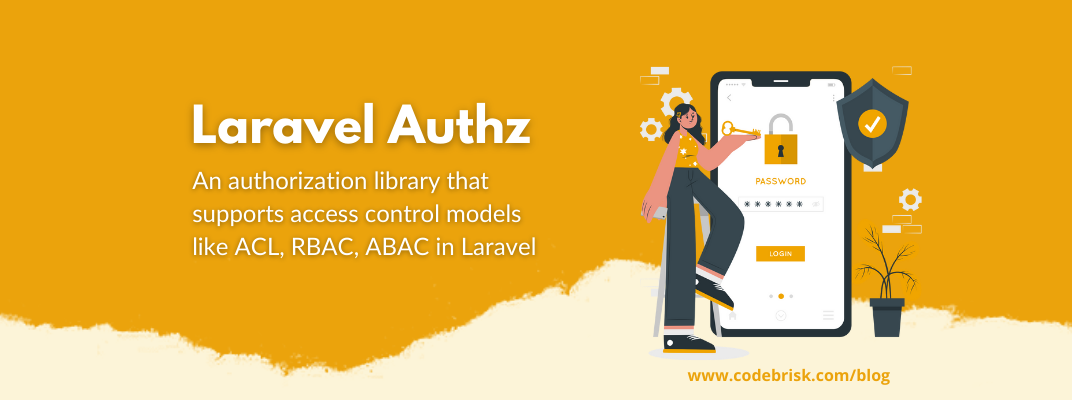Blog Detail
16
Mar
arrow_back Laravel Authz - An Authorization Library for the Laravel
Laravel Authz is a package based on the Casbin, an authorization library that supports access control models like ACL, RBAC, ABAC.
Installation
If you want to install this package then you have to run this command in the terminal. This will download the package.
composer require casbin/laravel-authz
To publish the config, run the vendor publish command:
php artisan vendor:publish
This will create a new model config file named config/lauthz-rbac-model.conf and a new lauthz config file named config/lauthz.php.
To migrate the migrations, run the migrate command:
php artisan migrate
This will create a new table named rules.
Usage
Quick Start
Once installed you can do stuff like this:
use Enforcer;
// adds permissions to a user
Enforcer::addPermissionForUser('eve', 'articles', 'read');
// adds a role for a user.
Enforcer::addRoleForUser('eve', 'writer');
// adds permissions to a rule
Enforcer::addPolicy('writer', 'articles','edit');
You can check if a user has a permission like this:
// to check if a user has permission
if (Enforcer::enforce("eve", "articles", "edit")) {
// permit eve to edit articles
} else {
// deny the request, show an error
}
Using Enforcer API
It provides a very rich API to facilitate various operations on the Policy:
Gets all roles:
Enforcer::getAllRoles(); // ['writer', 'reader']
Gets all the authorization rules in the policy.:
Enforcer::getPolicy();
Gets the roles that a user has.
Enforcer::getRolesForUser('eve'); // ['writer']
Gets the users that has a role.
Enforcer::getUsersForRole('writer'); // ['eve']
See Casbin API for more APIs.
Using a middleware
This package comes with EnforcerMiddleware, RequestMiddleware middlewares. You can add them inside your app/Http/Kernel.php file.
protected $routeMiddleware = [
// ...
// a basic Enforcer Middleware
'enforcer' => \Lauthz\Middlewares\EnforcerMiddleware::class,
// an HTTP Request Middleware
'http_request' => \Lauthz\Middlewares\RequestMiddleware::class,
];
Basic Enforcer Middleware
Then you can protect your routes using middleware rules:
Route::group(['middleware' => ['enforcer:articles,read']], function () {
// pass
});
Other Features & Options
- HTTP Request Middleware ( RESTful is also supported )
- Using Multiple enforcers
- Using artisan commands
- Using cache
For more details, you can visit its complete documentation and source code on Github.
Published at : 16-03-2022
Rizwan Aslam
I am a highly results-driven professional with 12+ years of collective experience in the grounds of web application development especially in laravel, native android application development in java, and desktop application development in the dot net framework. Now managing a team of expert developers at Codebrisk.

Launch project
